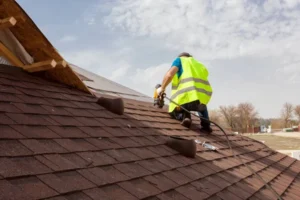Did you know household leaks can waste around 1 trillion gallons of water in the nation each year? If you want to learn about common plumbing issues, we can help.
This guide will explain why you should hire a professional plumber and let them handle your plumbing issue.
Want to learn more? Keep reading.
1. Many Drains Have Become Clogged
Have you needed to use your plunger at home more than usual? Do you need to buy chemical drain cleaners often?
You might have a significant clog that’s not treatable. Chemical cleaners could also damage your pipes.
If the drains in your home have slowed down or become clogged, you might have a problem with the main sewer line.
If the main sewer line has an issue, your toilet, shower, or sink, drains won’t work well.
Often, drains become clogged because of the build-up of grease. Grease can cool and move further down the line before becoming congealed. It will become a mass stuck in the sewer line.
Tree roots can slip into small openings and absorb nutrients or water in the sewer line. Once the roots get inside, they become an obstruction.
A slow drain isn’t the only sign of a root invasion. If you notice your toilet gurgles when you turn on the faucet, there might be trapped air in the plumbing system.
A collapsed sewer line is also another sign. Modern sewer lines get made from durable PVC plastic.
Lines installed in the 60s were made of cast iron or galvanized steel. They might last for five decades before they begin to corrode or rust.
Sewer lines will become misaligned. The soil will erode and cause them to detach.
2. You’ve Noticed Your Water Pressure Is Low
Have you turned on the shower and noticed you’re no longer getting a steady blast of water but instead a trickle? Low water pressure is a typical frustration homeowner deal with from time to time.
You should call in a plumber right away. Poor water pressure can occur if there’s something wrong with the main water supply line.
The private water supply line will branch off from a public line. Like any pipe, it can become susceptible to leaks or corrosion.
Hard water is another issue. Hard water has high mineral content. It can create a scaly build-up inside the water lines and impede flow. You could invest in a water treatment system.
A slab leak occurs from faulty installation. The leak can often go undetected for a long time and cause structural damage.
Along with low water pressure, slab leaks can also cause pooling water, mildew, or mold.
3. Your Water Pressure Is High
Your home’s water pressure should be around 60-80 pounds per square inch. If the water pressure goes beyond, you’ll deal with issues like dripping faucets or toilets.
High water pressure will strain your plumbing system. It can end up shortening the lifespan of your appliances.
Thermal expansion can be one of the culprits. Your water heater might cause high water pressure.
The water volume will expand as it gets hot and adds pressure to your plumbing system. To reduce this issue, install an expansion tank on your water heater.
A pressure regulator will manage water pressure entering your home from the municipal line. As time passes, the device will malfunction or wear out.
4. Your Sewer Has Begun to Back Up
Wastewater should only go in one direction, out of your home. If it backs up through your bathtub or sink, you will need a plumber to come in as soon as possible. Don’t delay in researching local plumbing services.
Tree roots can sometimes cause this issue. The roots in the sewer line will stop your drains and cause sewage to reverse its course. A clog from grease, hair or solid matter will push waste into your home.
A damaged sewer line won’t transfer waste to the municipal sewer line because it’s misaligned.
5. Your Water’s Rusty
Brown water from your tap reveals there’s an issue with your water heater or water supply line.
Rusty water doesn’t mean it’s unsafe, but it will taste bad. It can also stain your bath and sink basins.
There’s often sediment or rust in a water heater. If the hot water is discolored only, there’s an issue with your water heater.
The tank’s loaded with corrosion or sediment. The appliance will need to get flushed to remove residue. If that doesn’t work, you have to replace the water heater.
Are your pipes corroded? If the cold water has a rusty tint, your water supply line is corroding. This causes the mineral to leach into your water.
If your water has gone brown, there might be a breach with the waterline.
Call your water company right away. Most of the time, the company’s already aware of the issue.
Resin can produce a brown or orange color in the water. If the resin bed in your water softeners’ damaged, the water will have a rustier tint.
Don’t Worry About Any Plumbing Issue
We hope this guide on different plumbing issues you can experience was helpful.
Prevent a future plumbing issue by scheduling a few inspections throughout the year. Don’t delay if you notice a problem. Call in a plumber right away.
Are you looking for more homeowner tips? Stick around and browse our many resources.









